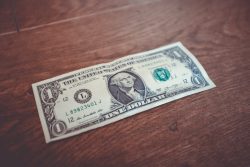
The economy has undergone a record-long expansion over the past decade, and that has lead some economists to worry that a recession is on the horizon. The coronavirus pandemic may or may not cause a recession — the Federal Reserve recently injected $1.5 trillion into the markets to avert exactly that. But choosing to pursue tax cuts for the wealthy, instead of adequately funding critical social programs, will deepen the recession when it comes, whatever ultimately causes it.
Rainy Day Funds
States keep “rainy day funds” to help when recessions cause revenues to decline or spending to increase. But Arkansas was not one of the 28 states prepared for a moderate recession in 2019, according to the credit agency Moody’s. And Arkansas is one of only two states without rules to ensure the rainy day fund is replenished after being drawn down. That’s worse than it sounds, because there aren’t many rules on how we spend the funds, either — it has been used to fund local economic development and the arts, for example.
Arkansas has two separate “rainy day” funds. There is the “Long-Term Reserve Fund” which currently has about $152 million in reserves, and a separate “Rainy Day Fund” which has about $15 million deposited in the 2020 budget. For the sake of comparison, during the Great Recession of 2007, Arkansas’s general revenue declined by about $262 million. Nonpartisan analysis from both left-leaning and right-leaning groups suggests that easy changes can have big impacts. Things like stricter rules on when we can draw from reserve funds can make a big difference in our state’s preparedness for a recession.
Unemployment Insurance
The federal-state unemployment insurance (UI) program pays unemployed workers a share of their lost wages for a set number of weeks. These payments are made out of the state’s UI trust fund. The Great Recession showed how UI programs can play a vital role in stabilizing the economy, creating jobs and reducing poverty. But is also showed how fragile state UI programs can be.
While UI proved vital in stabilizing the economy, 36 states, including Arkansas, depleted their UI trust funds and were forced to take out loans to continue paying out benefits. Instead of raising taxes to ensure robust funding, Arkansas has reduced the duration of unemployment compensation from 26 weeks to only 16. That leaves our state vulnerable to economic contractions that last longer than a few months.
Administrative Barriers on Public Assistance Programs
Public assistance programs are invaluable during recessions, not only to help people directly in dire times, but to help stabilize overall economic decline. The Supplemental Nutrition Assistance Program (SNAP) proved to be an effective automatic stabilizer during the Great Recession, but we’ve pursued policies on the federal and state levels to undermine that program, too. Adults without dependent children (“Able-Bodied Adults Without Dependents”) are required to work 80 hours a month to maintain eligibility on the SNAP program, but states can request waivers to this requirement if local employment conditions make it hard to find work.
Arkansas has not only decided not to seek these waivers in areas that may qualify, but we have expanded the population that is subject to the work requirements to include parents with children older than 6. Arkansas is also one of the states with the most punitive asset limitations on SNAP, meaning families in need have less ability to save for hard times themselves.
None of these policies would address the coronavirus directly. But it’s the responsibility of the state to utilize economic expansions to prepare to the next recession, rather than myopically cutting taxes and slashing social safety net programs.
Editor’s Note: This is the first in a series of posts addressing policies Arkansas’s lawmakers should consider to mitigate the negative economic impact of the coronavirus pandemic on vulnerable Arkansans.
